Since most households don't use hot water at night, it might make sense to turn your water heater off. However, does this make sense to save money on your energy bill? Let's take a look to see if this is a good strategy for saving money or not.
It will be more stressful for your water heater to be turned on and off constantly. This could lead to a shortened lifespan for your water heater. In addition, turning your water heater off will mean you'll have to wait longer for hot water when you need it.
Nonetheless, it is essential to know when to turn your water heater off to save money. In this article, we will discuss why you don't need to turn your water heater off at night. In addition, we will answer other frequently asked questions about water heaters, so read on!
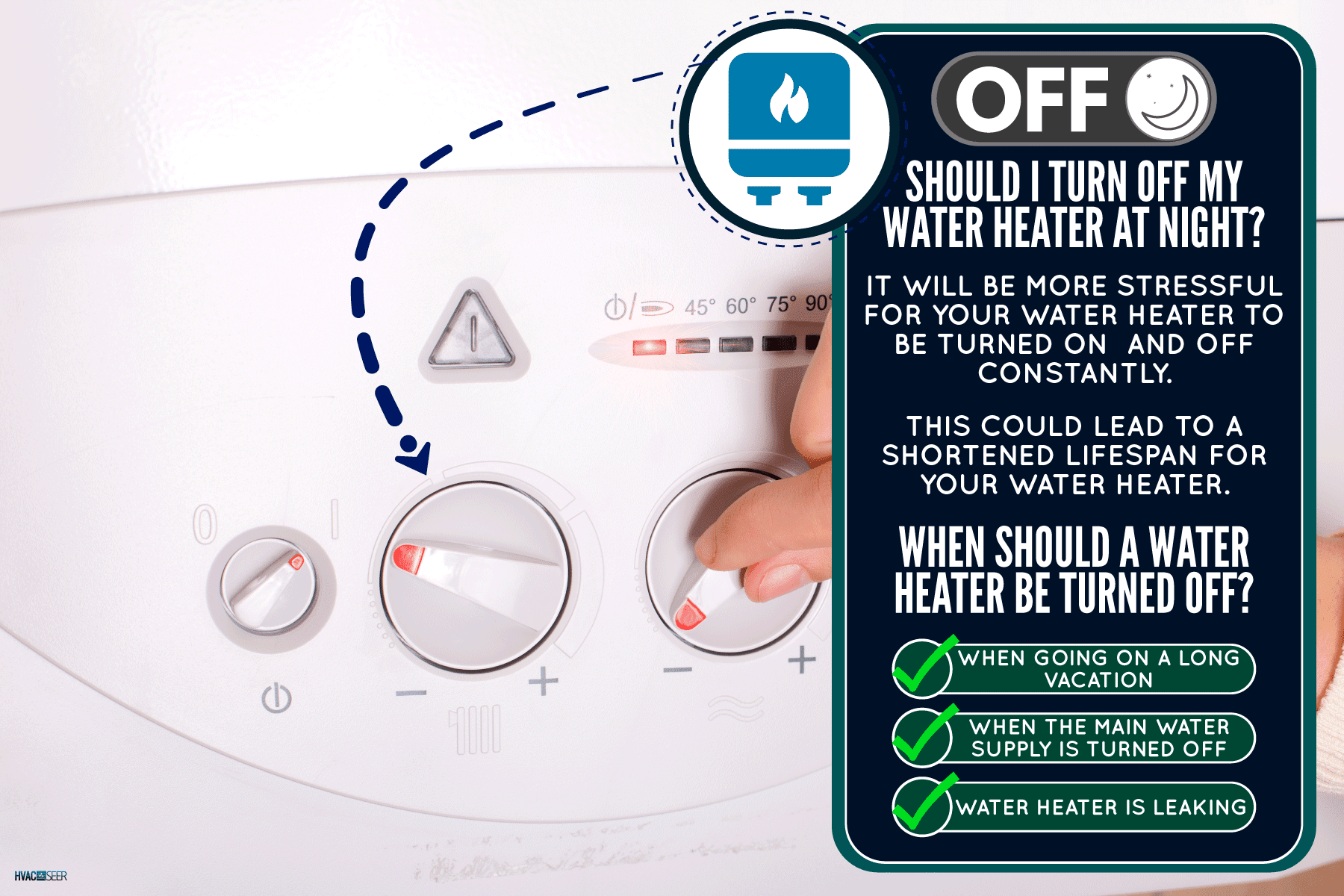
When Should A Water Heater Be Turned Off?
The purpose of a water heater is to keep water at a consistent temperature so that it is hot when you need it. This is why most people believe they should turn their water heater off when they are not using it.
For example, turning on your water heater during nighttime might make sense since most people are not using hot water during this time. However, you might be surprised to know that turning your water heater off at night can actually be costing you more money!
This is because your water heater will have to work harder to reheat the water when you turn it back on in the morning, as the water in the tank will cool down overnight. As a result, your water heater will use more energy to reheat the water, increasing your energy bill.
In addition, unnecessary stress on your water heater can shorten its lifespan. This is why it is generally not recommended to turn your water heater off when you are not using it.
If you have an older water heater, then you might have issues turning it back on. This is because the older system may not be able to handle the sudden demand for heat, which could cause it to break down.
So, when should you turn off your water heater? Let's look at some instances when turning your water heater off makes sense.
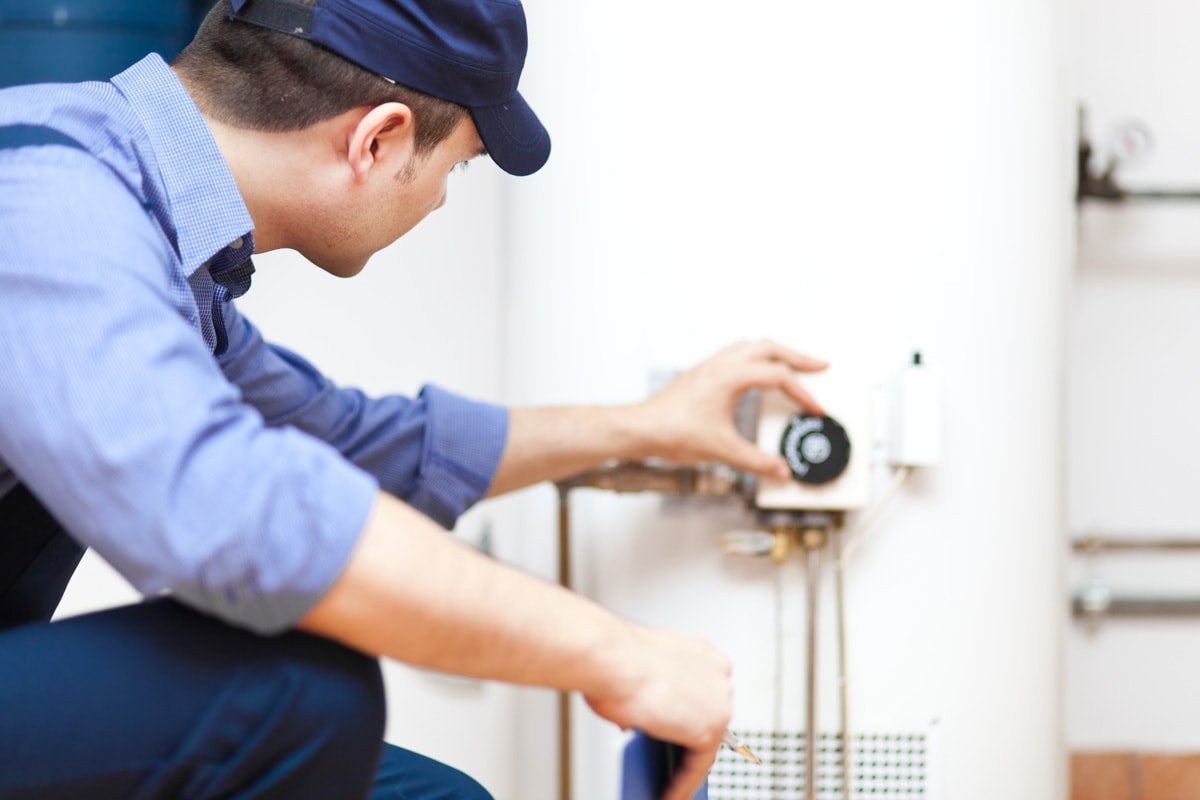
When Going On A Long Vacation
One time when it makes sense to turn your water heater off is when you are going on a long vacation. This is because you will not be using hot water during this time, so there is no need to keep your water heater on.
In addition, if you are going to be gone for an extended period, it is important to protect your water heater from freezing temperatures. This is because water can expand and crack the tank if it freezes.
To avoid this, you can turn your water heater on vacation mode or turn it off completely and drain the tank before you leave.
When The Main Water Supply Is Turned Off
Another time when you might need to turn your water heater off is when the main water supply to your home is turned off. This can happen if there is a water main break in your area or if you are doing renovations that require the water to be turned off.
In these cases, it is important to turn off your water heater so that the water in the tank does not become contaminated. Once the water is turned back on, you can then turn your water heater back on and flush the system to remove any contaminants.
Water Heater Is Leaking
If your water heater is leaking, it is important to turn it off immediately and call a plumber. This is because a leaking water heater can be a serious safety hazard.
Can You Still Use Water If The Water Heater Is Off?
As long as your main water supply is turned on, you can still use water even if your water heater is turned off. However, the water will not be heated, so it will not be as comfortable to use.
For example, if you take a shower with your water heater turned off, the water will be cold. In addition, your dishwasher and washing machine will not be able to heat the water, so your dishes and clothes might not come out as clean.
So unless you have a reason to turn your water heater off, it is generally best to leave it on. This will ensure that you have hot water when you need it.
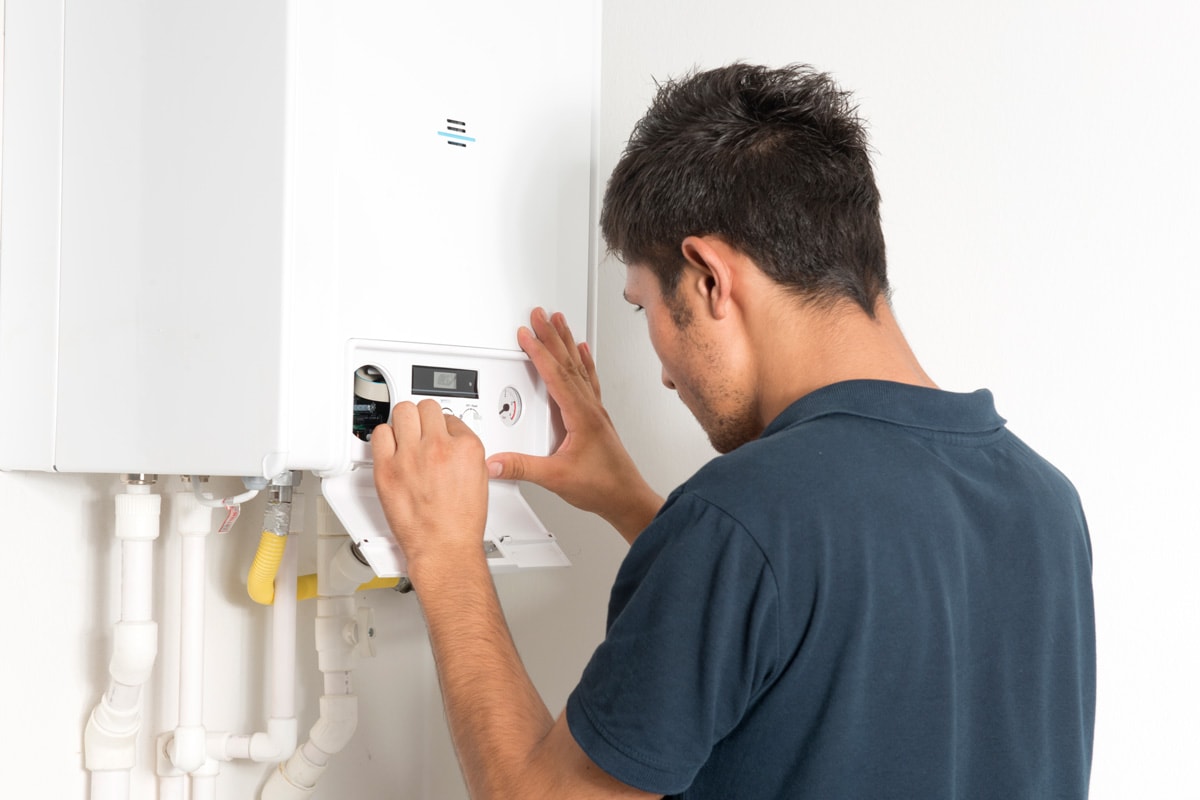
What Temperature Should A Water Heater Be Set At?
For efficiency and safety reasons, it is generally recommended to set your water heater at 120 degrees Fahrenheit.
This is a good temperature that kills bacteria but is not so hot that it poses a scalding hazard. While you can set your water heater up to 140 degrees Fahrenheit, this can be a safety hazard, so it is generally not recommended.
If you have young children or elderly people in your home, you might want to set your water heater at a lower temperature to reduce the risk of scalding.
In general, it is a good idea to check the temperature of your water heater periodically to make sure it is set at the right temperature.
How To Turn Off A Water Heater
In the situation where you need to turn your water heater off, there are a few things you need to do.
First, you should turn off the power to the water heater. For electrical water heaters, this means flipping the switch to the "off" position. For gas water heaters, this means turning the knob to the "pilot" setting.
Once the power is off, you can then turn off the water supply to the water heater. For most homes, there is a shutoff valve on the cold water pipe leading to the water heater.
Turning this valve to the "off" position will stop the flow of water into the tank. Keep in mind that there might still be water in the tank, so you might need to drain it before you can completely turn off the water supply.
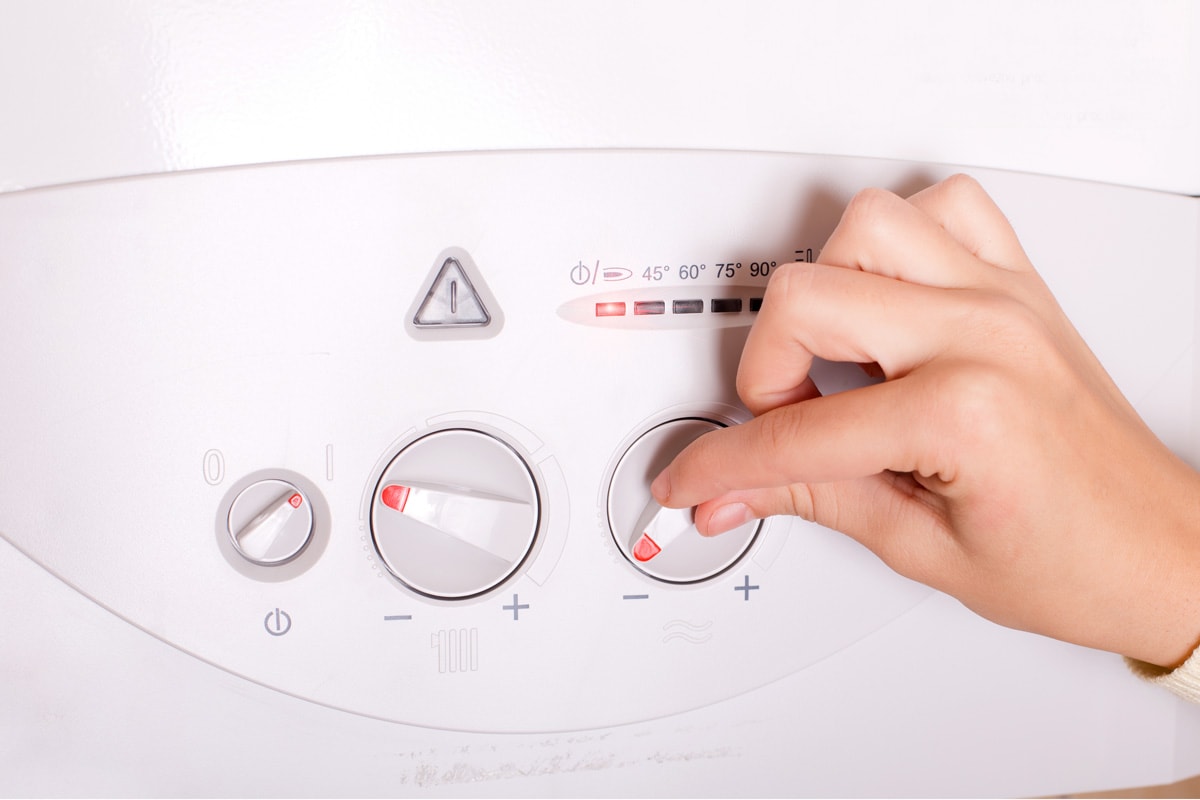
Once you have turned off the power and water supply, your water heater should be safe to leave off until you are ready to turn it back on.
If you have any questions or concerns about turning your water heater off, you should consult a professional plumber.
How Do I Know My Water Heater Is On Its Way Out?
If you are worried that your water heater is on its way out, there are a few signs to look for.
Strange Noises
One sign that your water heater is failing is if it starts making strange noises. This could be a popping, cracking, or knocking sound.
These sounds can be caused by sediment buildup in the tank. When the sediment heats up, it can cause these noises. Sediment buildup can also lead to inefficiency and premature failure of the water heater.
If you hear strange noises coming from your water heater, it is a good idea to have it checked by a professional.
Leaks
Another sign that your water heater is failing is if it starts leaking. Even a small leak can be a sign of serious problems.
A leaking water heater can be caused by a number of things, such as a faulty pressure relief valve or a cracked tank. A leaking water heater can also be a sign of corrosion.
If you notice any leaks, it is important to have your water heater checked by a professional as soon as possible.
Decreasing Hot Water Supply
If you notice that your hot water supply is decreasing, it could be a sign that your water heater is failing. A decrease in the hot water supply can be caused by sediment buildup in the tank. Sediment can insulate the heating element, making it less effective.
A decrease in the hot water supply can also be caused by a faulty heating element. If the element is not working properly, it will not be able to heat the water in the tank effectively.
Poor Water Quality
If the water coming from your water heater looks discolored or rusty, it could be a sign of corrosion. Corrosion can weaken the tank and cause it to leak. If you notice any signs of corrosion, it is important to have your water heater checked by a professional.
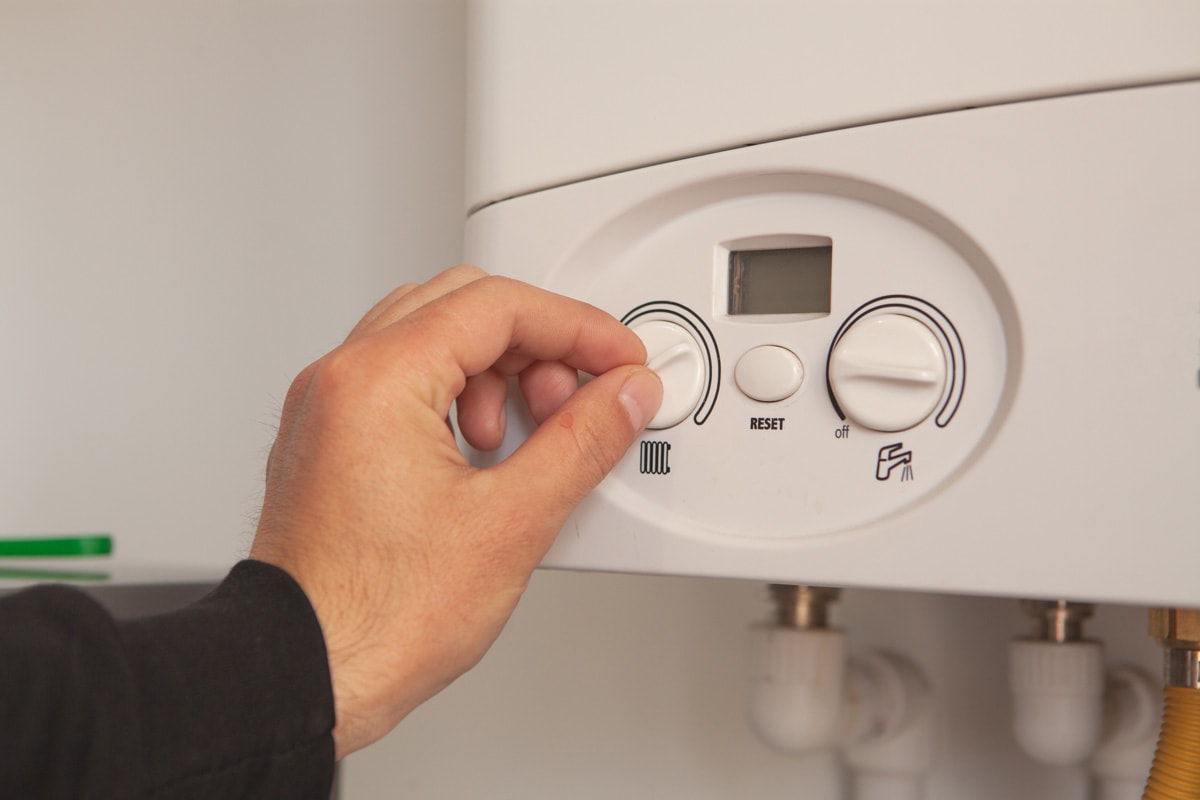
Any of these signs are a good indication that your water heater is on its way out and needs to be replaced. If your water heater is on the older side, it might be a good idea to replace it even if you haven't noticed any of these signs.
Final Thoughts
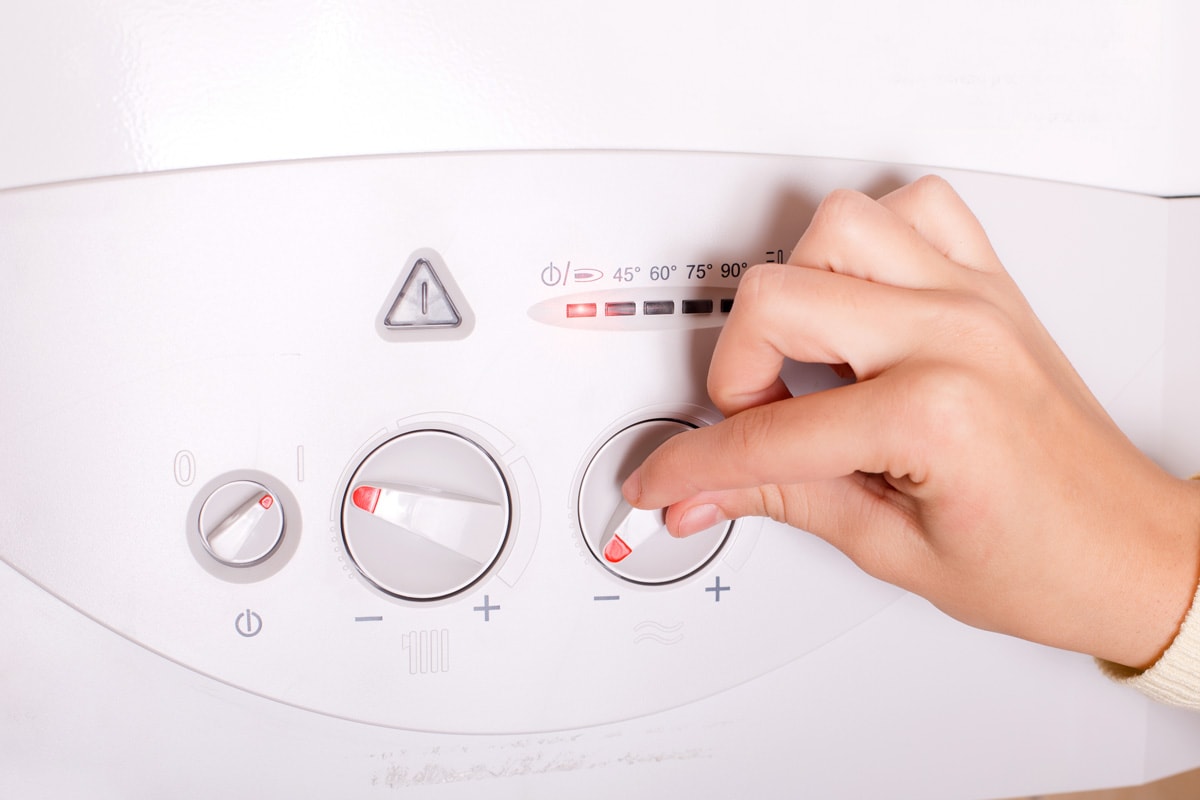
To avoid replacing your water heater more often than necessary, it is important to maintain it properly. This includes only turning it off when absolutely necessary, such as when you are going on vacation. If you have any questions, contact a professional.
Made it to the end? Here are other articles you might enjoy:
Sealing Gaps Around Hot Water Or Copper Pipes – How To?
